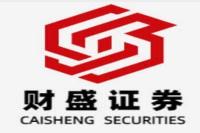Navigating the 2025 Agricultural Product Export Quota System: A Comprehensive Guide for Businesses
Meta Description: Unlocking success in the 2025 agricultural product export market: This guide provides an in-depth analysis of the new export quotas, allocation processes, and strategies for maximizing your share. Learn how to navigate the complexities and secure your piece of the pie. Keywords: Agricultural Product Export Quotas, Export Quota Allocation, 2025 Export Policy, Agricultural Exports, China Export Regulations, Supply Chain Management, Trade Policy.
Wow, the Ministry of Commerce (MOFCOM) just dropped the 2025 agricultural product export quota announcement – and it's a game-changer! This isn't just another policy document; it's a roadmap to success for savvy exporters. But let's be honest, wading through the official jargon can feel like navigating a corn maze blindfolded. That's where I come in. As someone who's been knee-deep in international trade for over a decade, I've witnessed firsthand the rollercoaster ride of export quotas, the nail-biting waits for allocations, and the sheer elation of securing a significant share. This comprehensive guide will demystify the intricacies of the 2025 quotas, providing actionable strategies and invaluable insights to help your business thrive in this competitive landscape. We'll delve into the allocation process, explore best practices for maximizing your chances, and offer practical tips for navigating the administrative hurdles. Get ready to ditch the guesswork and embrace a strategic approach to conquering the 2025 agricultural export market! This isn't just about numbers and regulations; it's about building a sustainable future for your business, securing your market share and establishing your brand as a leader in the industry. So, grab your coffee, settle in, and let's unlock the secrets to success together!
Understanding the 2025 Agricultural Product Export Quotas
The MOFCOM's announcement regarding the 2025 agricultural product export quotas marks a significant shift in how China manages its agricultural exports. This new policy emphasizes efficiency, transparency (to some degree!), and a focus on rewarding high-performing businesses. Gone are the days of relying on luck alone; now, strategic planning and a strong track record are crucial for securing a substantial quota. This means that businesses need to be proactive, well-organized and have a proven history of efficient operations and high-quality products. The emphasis on "completion rate," "operating ability," "source quality," and "brand reputation" is a clear indication that MOFCOM wants to support businesses that demonstrate both competence and commitment to exporting quality products. Think of it as a merit-based system – the better your performance, the bigger your slice of the pie.
This new policy also highlights the importance of regional coordination. Local commerce departments play a pivotal role in the secondary allocation and verification process, ensuring that quotas are distributed fairly and efficiently across the country. This decentralized approach allows for a more nuanced understanding of regional needs and capacities. It also necessitates a close working relationship between businesses and their local authorities. Regular communication and proactive engagement with local officials are crucial for navigating this aspect of the quota system effectively. A laissez-faire attitude, however, can be extremely detrimental to your success.
The policy also emphasizes the need for a dynamic approach to quota management. MOFCOM stresses the importance of closely monitoring quota usage and making timely adjustments as needed. This dynamic approach reflects a forward-thinking strategy to address market fluctuations and ensure optimal utilization of resources. Businesses should anticipate the need to adapt their strategies as the market evolves throughout the year.
Key Aspects of the Quota Allocation Process:
- Initial Allocation: The initial allocation is determined by MOFCOM based on various factors, including historical performance and national export goals.
- Secondary Allocation: Local commerce departments handle the secondary allocation, considering regional needs and individual business performance.
- Verification and Feedback: A rigorous verification process is in place to ensure the accuracy and fairness of the allocation. Regular feedback is expected to refine the process further.
- Dynamic Adjustment: Quotas can be adjusted throughout the year based on market changes and utilization rates.
- Reporting Requirements: Businesses are required to report their quota usage regularly to the relevant authorities.
Strategies for Securing a Larger Quota Share:
- Demonstrate a Strong Track Record: A consistent history of high export volumes and excellent product quality is paramount. This means meticulous record-keeping and a commitment to delivering top-notch goods.
- Build Strong Relationships: Cultivating strong relationships with local commerce departments and other relevant stakeholders is crucial. Regular communication and transparent operations build trust.
- Invest in Quality Control: Maintaining the highest standards of quality control is essential to building a reputation for reliability and excellence.
- Develop a Strong Brand: A strong brand reputation enhances your credibility and increases your competitiveness in securing a larger quota.
- Embrace Technology: Leveraging technology for efficient supply chain management and improved communication can significantly enhance your operational efficiency and boost your chances.
- Diversify Your Product Portfolio: Focusing on niche markets and diversifying your products can reduce dependence on a single market and improve your overall competitiveness.
Navigating the Administrative Hurdles:
The administrative process can be complex, requiring meticulous attention to detail. Here's what you need to consider:
- Accurate Documentation: Maintain meticulous records of all export activities, ensuring accuracy and compliance with regulations.
- Timely Reporting: Submit all reports promptly, adhering to deadlines and specified formats.
- Proactive Communication: Maintain open and proactive communication with relevant authorities, addressing issues promptly and efficiently.
- Seek Professional Advice: Don't hesitate to seek professional legal and trade advice to navigate complex regulatory requirements.
Impact of the 2025 Agricultural Product Export Quota System
The 2025 agricultural product export quota system is poised to have a significant impact on businesses across the agriculture sector, fundamentally altering the landscape of agricultural exports from China. For businesses that are already well-established and have a strong track record, this system provides a framework to further consolidate their market position. However, for those who are less prepared, it presents a significant challenge to adapt and compete in this new reality.
The emphasis on quality, efficiency, and brand reputation will undoubtedly drive innovation and improvement across the industry, leading to a greater focus on sustainable practices and the production of high-quality products. Consumers will likely benefit from improved product quality and safety standards, which will contribute to a greater level of confidence and trust in Chinese agricultural products in the international market.
Frequently Asked Questions (FAQs)
Q1: What happens if I don't get a quota?
A1: Not securing a quota doesn't necessarily mean the end of the road. Explore alternative export channels, focus on domestic markets, or consider forming strategic partnerships with companies that have secured quotas.
Q2: How can I appeal a quota allocation decision?
A2: The MOFCOM announcement outlines procedures for appeals. It's essential to understand these procedures and prepare a well-supported appeal based on verifiable evidence and sound arguments.
Q3: What happens if I don't use my entire quota?
A3: Unused quotas might be redistributed or recovered by the authorities; keep up-to-date communications and plan for efficient utilization.
Q4: What support is available for businesses seeking quotas?
A4: Local commerce departments often provide guidance and support to businesses throughout the quota application and allocation process. Leverage their expertise.
Q5: What are the penalties for violating quota regulations?
A5: Penalties can range from fines to suspension of export licenses, so compliance with all regulations is absolutely paramount.
Q6: How often are quotas adjusted?
A6: The frequency of adjustments depends on market conditions and the overall performance of the export sector. Regular monitoring of official announcements is crucial.
Conclusion
The 2025 agricultural product export quota system represents a significant regulatory shift for the Chinese agricultural export sector. By understanding the intricacies of the system, embracing proactive strategies, and maintaining open communication, businesses can navigate these changes effectively. Remember, this isn't just about securing a quota; it's about building a sustainable and successful future for your business in a dynamic and competitive global market. So, roll up your sleeves, get organized, and let's make 2025 the year your agricultural exports truly take off!



